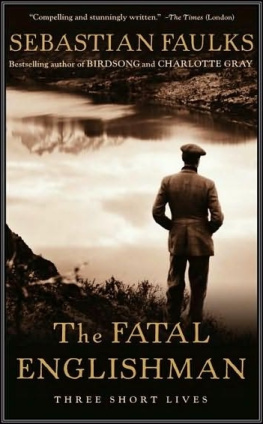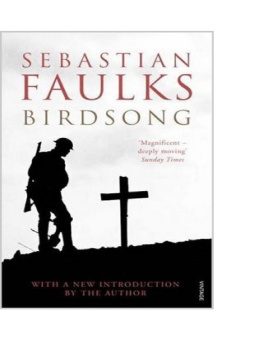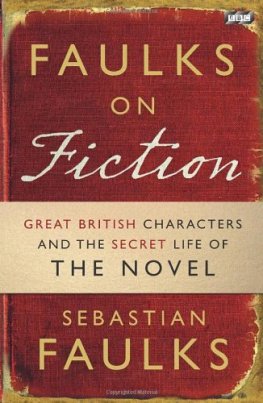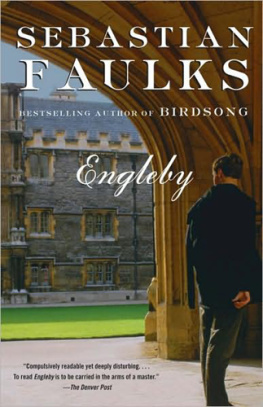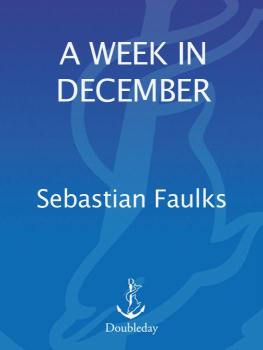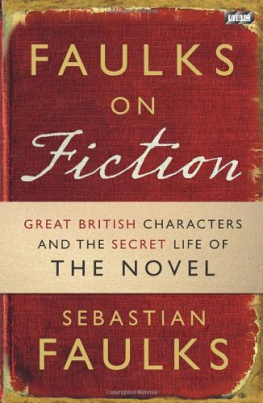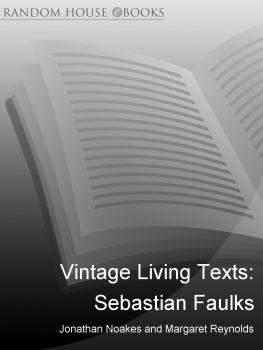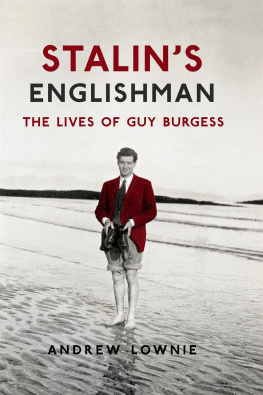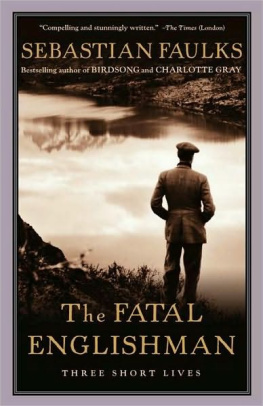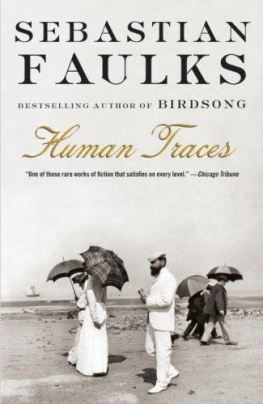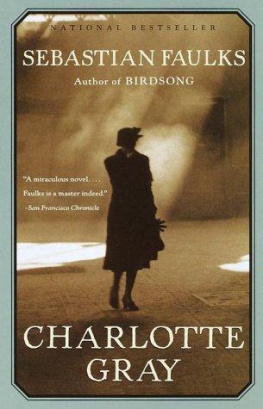| The Fatal Englishman |
| Sebastian Faulks |
| Vintage (1996) |
| Rating: |
| Tags: | Literary, Biography Autobiography, Great Britain, Historical
Literaryttt Biography Autobiographyttt Great Britainttt Historicalttt |
From Publishers Weekly
In his first work of nonfiction, Faulks, a bestselling British novelist, takes up the brief but brilliant lives of three gifted countrymen who died young: painter Christopher Wood; fighter pilot Richard Hillary; and foreign correspondent Jeremy Wolfenden, considered the brightest mind of his generation. Through these tragic tales, Faulks explores the British character as it painfully evolved during the 20th century, spurring both the acceleration and fatal plunge of these vital young men. Wood, a part of the beau monde of 1920s Paris, drew praise from the likes of Picasso and Jean Cocteau. Hillary, who heroically returned to the skies after a fiery dogfight, won renown as a writer in his early 20s. While the sections on Wood and Hillary prove interesting, they are sometimes plodding, and shot through to distraction with background information. The final section on Wolfenden, however, is gripping. Great things were expected of the Eton and Oxford standout even as he became a reckless, alcoholic correspondent in Moscow, drawn into the world of Cold War espionage. While ambition, addiction and arrogance play destructive roles in these lives, homosexuality and the British attitude toward it is a recurring theme that Faulks suggests as a contributing factor. But the complaints here are mostly minor. The writing is solid, at times poetic, and the research thorough. In the end, Faulks manages to jolt the imagination with the tantalizing agony of what-might-have-been. 8 pages of photos not seen by PW.
Copyright 2002 Cahners Business Information, Inc.
From Library Journal
Fans of novelist Faulks's evocative depictions of wartime heroism (e.g., Charlotte Gray) will embrace his first venture into biography, a study of three brilliant yet mortally flawed men who lived on either side of the World War II era. Working in chronological order, Faulks first sketches the life of artist Christopher "Kit" Wood. Wood's ambition to become a great painter led him to Paris in the 1920s, where charm and circumstance placed him in the company of cultural giants like Picasso and Cocteau. In a profile of Royal Air Force ace Richard Hillary, Faulks ably changes gears as he describes a man who personified the casual fatalism of a spitfire pilot. Faulks finishes with Jeremy Wolfenden, a proud homosexual and dazzlingly intelligent journalist ensnared in Cold War blackmail and spy games. Of course, as the title informs us, these men are all doomed to an early death. There is nothing romantic about killing yourself with drugs, drink, or daredevilry, yet Faulks is able to captivate with his meticulous, caring treatment of these three who died on the cusp of greatness. Recommended for all public and academic libraries. Gail Benjafield, St. Catharines P.L., Ont.
Copyright 2002 Cahners Business Information, Inc.
British acclaim for Sebastian Faulkss THE FATAL ENGLISHMAN Unusual, fascinating and interlocking in the oddest ways. Time Out London
Superb . A mystery story of rare narrative power. Faulks brings to these portraits the exquisite detail which made Birdsong so evocative. This is biography written with that revealing sense of the moment which marks good fiction. Financial Times
This is the most wildly exciting book that Ive read for a long time, and on a great theme: how the failures of Britain in the twentieth century have seeped into the souls of its countrymen. Its a classic. David Hare, The Spectator
Brilliantly described. A perfectly constructed narrative. Evening Standard
Extremely well-written. Faulks describes the three heroes manqus with sympathy and understanding. He has produced three excellent mini-biographies. Literary Review
I have always thought that good biographers could write excellent novels. Now I have to admit that an excellent novelist has written a good biography. The Fatal Englishman is a subtle, original and exciting book. Carole Angier, New Statesman & Society

Sebastian Faulks THE FATAL ENGLISHMAN Sebastian Faulks is the author of the novel On Green Dolphin Street and a trilogy of novels set in France: The Girl at the Lion dOr, Birdsong , and Charlotte Gray , the latter two of which were bestsellers. After a period in France, he and his family now live in London. ALSO BY SEBASTIAN FAULKS
A Fools Alphabet
The Girl at the Lion dOr
Birdsong
Charlotte Gray
On Green Dolphin Street

With love to William and Holly
CONTENTS
LIST OF ILLUSTRATIONS
AUTHORS NOTE By chance I read a book about a young American who had been by so far the outstanding character of his generation as scholar, athlete and personality of ambitious charm that his graduation from Yale in 1957 was covered by Time magazine, while his contemporaries selected the jobs he would give them when, not if, he became President. Yet after a glorious start, his career stalled. The book ( Remembering Denny by Calvin Trillin) was an investigation into what went wrong. The subject ended up committing suicide, and much of his problem seemed to stem from the fact that he could not accept his homosexual desires. Had he been born a few years later, the author implied, he would have encountered no such problems. The book made me think that young or short lives are more sensitive indicators of the pressure of public attitudes than lives lived long and crowned with honours. The stories of young people who delight parents and friends with their talents have a concentrated significance in their beginnings, and in their premature ends there is a natural poignancy that brutally epitomises the disappointment that is also common but less evident in longer, duller lives. Three such lives, each done at the length its span naturally required (a third of a life, a third of a book) that might well seem full enough to take away the sense of so what that would cling to a single short life. And then if perhaps the subjects actually had achieved something interesting and if they were to come from different parts of the century and so have lived against a different public background and thus illustrate the impact of changing attitudes and preoccupations over a long period This book was originally called The Artist, the Airman and the Spy. It is, after all, three separate biographies: the lives of three people who never met. It seemed fair that the title should not only recognise the subjects individuality but also emphasise the defining importance of work in each mans life. As I researched and wrote these three lives, various links between the three characters and various common themes emerged, none of which I had known about before I had started. This obviously encouraged the urge towards unity that finds its best expression in fiction, when the events can be shaped and patterned to echo the themes, while the characters can be made, within the limits of their realistic capacities, to behave in a way that adds a further level of harmony. I tried to resist this urge. Having allowed it to dictate a new title, which stressed the characters similarities, I wanted to remain faithful to their differences. The lives of real people, unlike those of fictional characters, seem to exert a small but constant outward force away from order. So while I attempted, as gently and as truthfully as possible, to shape the events of their lives into some comprehensible pattern, I tried also to respect their individual energies, which seemed to push in the opposite direction, back towards singularity: the artist, the airman and the spy. I have occasionally used the words England or English where some readers might have expected Britain or British. This is not because I imagine they are interchangeable, but because I accept that there is a difference.

